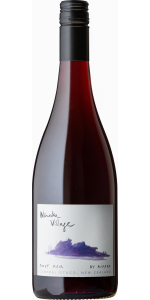
Description
From 100% biodynamic Rippon fruit, we wanted to see how Rippon’s mature parcels of Pinot Noir would fare with no barrel time and no oak. The idea of this was to bring vineyard and glass one step closer and turn up the Wānaka volume; a tribute to the amazing village in which we live and play and which we call home.
Certifications
Alcohol
13.0%
Analytical data
dry
Vineyard
Rippon aims to foster products that are a true and accurate reflection of their site; climate, aspect, culture and soils.
With their ability to metabolise minerals from the soil and release soluble exudates available to plants, it is the microflora of the soil which allows the vine to be receptive and reflective of the site. Our true craft therefore is to work the land in such a way as to maintain a healthy, natural and living soil.
When making operational decisions on the land, we seek to consider what effect our actions with have on soil biota. Whilst with farming it is impossible to allow the land to carry out all its natural processes (our farming aspirations are ultimately in conflict with the land’s natural state), many compromises are be made.
At Rippon, we work to achieve our goals as winegrowers in constant consideration of what the land itself might seek to gain from us in return. We believe this relationship allows Rippon (the place) to carry out enough of its own natural processes so as to continue expressing itself as an individual – and through the products it issues.
The indices considered when making operational, soil management related decisions may include:
Physical: altitude, ultra-violet light, wind, water (rainfall, soil-retention, irrigation) Mechanical: cultivation, compaction, Cultural: finance, staff availability, health & motivation Astral: lunar, planetary, seasonal & daily rhythms
The frequency, timing and tasks of all staff are carefully considered with regards to the above decision-making indices.
No synthetic fertilizers, herbicides, fungicides, pesticides or other chemicals that may contribute to soil degradation are used.
Vinification
Fermented in stainless steel tank, the Wānaka Village Pinot Noir went through its malolactic fermentation naturally in springtime and was bottled after 11 months with no filtering or fining


